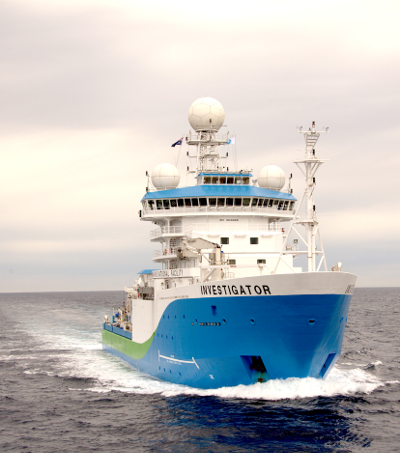Ship funding sought
 Money is running short for CSIRO’s science ship.
Money is running short for CSIRO’s science ship.
Australia's premier marine research vessel, the RV Investigator, is facing a significant funding deficit.
Despite the CSIRO's application for $93 million over four years to maintain the RV Investigator at full capacity, only $59 million has been allocated, resulting in the scrapping of two vital research voyages scheduled for 2025–26 and a reduction in sea time by a third.
The RV Investigator, valued at $126 million, plays a crucial role in Australia's scientific exploration, having embarked on over 100 voyages and covering nearly 500,000 kilometres.
However, since soon after its first docking, the ship has rarely been run at full capacity, and is sometimes used for mineral exploration.
Its scientific missions have ranged from studying the Southern Ocean's edge to the tropical waters north of Australia, contributing to the discovery of almost 1,000 new species and providing invaluable data on climate change effects.
However, the current funding predicament means the vessel could be “sitting idle” in Hobart for up to 165 days a year unless alternative funding sources are found.
The operational cutbacks have raised concerns among scientists about the long-term impact on marine research.
“I think it's a terrible tragedy,” says Professor Tom Trull, an oceanographer central to many of the vessel's missions.
Authorities say the reduced operational days not only diminish Australia's capacity to conduct wide-ranging marine research but could potentially impact the training and future careers of marine science students through programs like the Collaborative Australian Postgraduate Sea Training Alliance Network (CAPSTAN).
Amidst the funding issues, the RV Investigator has recently been instrumental in solving the mystery of the SS Nemesis, a steamship that vanished in 1904.
A collaborative effort led by the CSIRO and supported by Heritage NSW identified the wreck off the NSW coast, providing closure for a century-old maritime mystery.
This discovery underscores the RV Investigator's vital role in maritime history and research.
As the CSIRO seeks alternative funding solutions to ensure the RV Investigator can return to 300 days of service, advocates call for investment in public-good science.
Greens Senator Peter Whish-Wilson expressed concerns about the vessel being potentially leased to the oil and gas industry, emphasising the importance of using the RV Investigator for critical research rather than commercial pursuits.








 Print
Print